- Home
- Rick Mofina
If Angels Fall
If Angels Fall Read online
If Angels Fall
Rick Mofina
Kindle Edition April 2013
Print Edition 2000
Copyright 2013 Rick Mofina
Copyright 2000 Rick Mofina
ISBN 978-1-927114-08-7
Cover design by James T. Egan, bookflydesign
This e-book is intended for your personal enjoyment only. This e-book may not be sold or given away to other people. If you’re reading this e-book and did not purchase it, please return to Amazon.com and purchase your own copy.
Thank you for respecting the hard work of this author.
Carrick Publishing.
This is a work of fiction. Names, characters, places and incidents either are the creation of the author’s imagination or are used fictitiously, and any resemblance to actual persons living or dead, business establishments, events or locales is entirely coincidental.
Contents
Also by Rick Mofina
BEGIN READING
Acknowledgements
About the Author
Contact Rick Mofina
Praise for the novels of Rick Mofina
BE MINE
"Rick Mofina is writing a fine series of thrillers: Swiftly paced, entertaining, with authentic details of police procedure." - Dean Koontz, #1 New York Times Bestselling author of The Face and Fear Nothing
BLOOD OF OTHERS
"Tense, realistic, and scary in all the right places." James Patterson, #1 New York Times Bestselling Author
"Another riveting read from one of the leading thriller writers of the day." - Penthouse
COLD FEAR
"A powerful gut wrenching thriller." - The Midwest Book Review
"Bursts with suspense. The action is so intense, the writing so realistic, it's as if we are there during the search. This is a book to cause icy shivers." - RT BookReviews Magazine
IF ANGELS FALL
"If you buy it for the flight, you'll be reading it on the escalator." - National Post
"Guaranteed to keep readers flipping the pages." - The Toronto Sun
THEY DISAPPEARED
"Rick Mofina's tense, taut writing makes every thriller he writes an adrenaline-packed ride." - Tess Gerritsen New York Times bestselling Author
THE BURNING EDGE
"Tight and excruciating suspense...a winner." - Jeff Ayers, RT BookReviews
IN DESPERATION
"A blisteringly paced story that cuts to the bone." - James Rollins, New York Times bestselling author
THE PANIC ZONE
"The Panic Zone is a headlong rush toward Armageddon. It's brisk pace and tight focus remind me of early Michael Crichton." -Dean Koontz #1 New York Times bestselling author
VENGEANCE ROAD
"Vengeance Road is a thriller with no speed limit! It's a great read!" - Michael Connelly, #1 New York Times bestselling author
SIX SECONDS
"Six Seconds moves like a tornado." James Patterson, #1 New York Times bestselling author
Also by Rick Mofina
INTO THE DARK
THEY DISAPPEARED
THE BURNING EDGE
IN DESPERATION
THE PANIC ZONE
VENGEANCE ROAD
SIX SECONDS
A PERFECT GRAVE
EVERY FEAR
THE DYING HOUR
BE MINE
NO WAY BACK
BLOOD OF OTHERS
COLD FEAR
IF ANGELS FALL
THREE TO THE HEART (Anthology)
DANGEROUS WOMEN & DESPERATE MEN (Anthology)
For Barbara, Laura, and Michael
ONE
Danny saw the girl again.
As the subway train eased out of the Coliseum station, he looked up, captivated by her frozen smile, her vacant stare, and the fact that she never spoke.
Never.
She was dead.
Her throat had been cut and her body stuffed into a plastic garbage bag hidden in Golden Gate Park.
She was two years old and her name was Tanita Marie Donner. Two eleven-year-old girls from Lincoln Junior High found her during a science class field trip.
“She looked like a little naked doll,” Natalie Jackson, one of the girls, told a San Francisco TV station.
That was a year ago. The nightmares were now less frequent for the schoolgirls. For most San Franciscans, Tanita’s murder was fading from memory, although her face still stared from bus shelters, store windows, and bumper stickers, an image as familiar to the Bay Area as the Golden Gate or the Transamerica Pyramid. For a time, it embodied San Francisco’s anguish. A blurred, grainy blow-up of a color snapshot, Tanita timidly showing her tiny milk-white teeth as Mommy coaxed a smile. Two pink butterfly barrettes held back her brown hair. She was wearing a cotton dress with lace trim, and crushing her white teddy bear to her chest. Her dark eyes shining like falling stars.
REWARD screamed in bold, black letters above her head. Below were details of when and where Tanita was last seen alive. Twenty-five thousand dollars was offered for information leading to an arrest in her murder. No takers.
Tanita Marie Donner’s killer was still out there.
As the train worked its way through the transbay tunnel of the Bay Area Rapid Transit system, three-year-old Daniel Raphael Becker remained transfixed by a poster of Tanita Marie Donner.
“Who’s that, Dad?” he asked his father.
“Don’t point, Danny. She’s just a little girl. Now please sit still. We’ll be home soon.”
Nathan Becker settled back in his seat, opened the business section of Saturday’s San Francisco Star, hoping to finish a story he began at home that morning before he and Danny left for the game. Nathan was a systems engineer who commuted by CalTrain to Mountain View. The article was about his firm which was on the brink of a revolutionary breakthrough. The game was a yawner, the A’s were embarrassing the Yankees. Danny was bored, so they left the Coliseum after the fifth. Just as well, because now they had to go all the way to Daly City to pick up some artist brushes for his wife, Maggie. Nathan had promised. It was a long ride, and he wished he hadn’t let Danny talk him into taking BART. He got his fill of trains during the week. They’d cab it home from the shop.
The day had started like a typical summer Saturday for Nathan and Danny, with one of their weekend-buddy excursions.
“Want to go to Oakland and see the A’s game today, Dan?” Nathan was making scrambled eggs while Maggie slept upstairs.
“Can we do the wave, Dad?”
“You betcha.”
Danny laughed.
Nathan buffed his son’s hair and watched him eat. Danny’s eyes radiated innocence. Blood of my blood. Miracle baby. How he loved him. But his promotion to department head meant longer hours and rationing time with Danny to weekends, leaving him to survive the week with glimpses of his son asleep, glimpses stolen after tiptoeing into his room at the end of another pressure-cooker day.
Jordan Park was a sedate neighborhood sheltered with stands of feather-duster palms, a community of Victorian houses with billiard-table-green lawns. An oasis for young professionals that was not quite as pretentious as Pacific Heights. Today, Nathan got to prove how unpretentious he was. Danny wanted to take BART to Oakland.
“Let’s take the Beemer, Dan. We’ll put the top down?”
“I want to ride the train like you do, Dad. BART goes right under the bay.”
“I know it goes right under the bay.” Nathan sighed. “Okay.”
Before they went, Nathan left a note on the fridge and, reluctantly, his BMW in the garage. He and Danny walked to California, hopped a bus, then a cable car to Embarcadero Station, where an escalator delivered them at a funeral’s pace into the subway system winding through the Bay Area.
After she heard them leave, Maggie Becker rose from bed, showered, put on her robe, then made a pot of Earl Grey Tea. She curled up on the sofa in the living room with the Arts section of the newspaper, savoring an empty house. Later, she dressed in faded jeans and a Forty-Niners sweater, then climbed upstairs to her studio. It was a large, bright room with hardwood floors, and a bank of floor-to-ceiling windows overlooking their backyard rose garden and the treetops, framing her view of a small park where trumpeter swans glided in a manmade pond.
This was Maggie’s sanctuary.
It was here she had mourned the miscarriage of her first child, lost after she fell from a step ladder while wallpapering the nursery. Her uterus was damaged, the doctors said. The chances of her carrying a baby to term were now three in ten. They suggested adoption. A few months later, Nathan started leaving her brochures from agencies. Maggie threw them into the trash. She refused to let a cruel, freak accident rob her of motherhood.
Nathan understood.
So it was here, while watching the swans, Maggie’s prayers were answered. It was here, when she became pregnant with Danny, she sat with her hands pressed to her stomach, begging God to let her keep this baby.
God had heard her.
Their healthy baby boy was delivered by caesarean section. They named him Daniel after Nathan’s father, and Raphael for the Italian painter, whose work Maggie adored. Danny was her hope, her light, her angel. His birth reaffirmed the love between her and Nathan and resurrected the artistic dreams she had buried with the loss of their first baby. Here, in this refurbished attic, Maggie produced a succession of inspired water colors, which sold regularly at a gallery down the peninsula.
Maggie pulled off the tarpaulin covering a landscape in progress, collected her brushes, and inhaled the fragrance of paints and freshly cut grass wafting into her studio.
Her life was perfect now.
The train came to the next stop. The automatic doors opened. Dank air rushed into the car as Danny watched the people leaving jostle with those getting on. Then a short warning chime echoed. “Doors closing,” Danny said. He had picked up the routine. Three seconds later, the doors closed. The train jolted forward, gathering speed, pulling them deeper into the tunnel system.
“How many more stops, Dad?”
“Uh-huh,” Nathan said, eyes locked onto his newspaper, oblivious to the new passengers crowding the car. He had slipped comfortably into his commuter habit of losing himself in his newspaper.
Danny looked at his dad reading. He was bored, so he stared at his own hand and counted his fingers. Remembering the hotdog he had at the game, he licked his lips and wished for another one. He yawned. He looked up across the car at Tanita Marie Donner’s face, slid off of his seat, and stood next to it, facing the poster.
“I’m just going right here, Dad.”
“All right,” the newspaper said.
The train wavered. Danny steadied himself, noticing a tiny, silver chain dangling from the ear of a teenager down the aisle. It glinted rhythmically with the train’s rocking motion, like a hypnotist’s watch, bidding Danny closer. He stepped carefully around the outstretched, tanned legs of a boy studying a motorcycle magazine, head bobbing to music leaking from the headset of his CD player. Suddenly a skateboard shot at Danny. He tensed before it was stopped by a scuffed Reebok worn by a girl in an oversized sweatshirt. Danny moved on, paying no attention to the other passengers until he stood before the teenager wearing the chain. His face was ravaged by acne. His jet-black mohawk hair was greased into six-inch spikes frozen in a coiffured explosion. He wore black boots, torn black pants, a black T-shirt with a death’s head that was partially hidden by his silver-studded black leather jacket.
Danny pointed at the chain. “What’s that?”
The teenager ceased chewing his bubble gum, left his mouth open, and giggled as if he had just been tickled. His girlfriend giggled, too. Although her hair was fuchsia and her chains smaller, her appearance mirrored her boyfriend’s right down to the gum chewing. They were holding hands. The teen leaned toward Danny, turned his ear to him, and shook the chain.
“This is my lucky charm.” He grinned. “You should get one.”
The girl playfully grabbed her boyfriend’s groin, pouting and asking Danny, “And what’s this?”
It was called a PEE-nus. Danny knew because his mother answered the same question for him one night when he was in the tub. He’d forgotten the word, but he clearly recalled the function.
“Do you have to pee?” Danny asked, triggering the couple’s laughter as they stood to leave.
The train was slowing. Danny was bumped from behind, nearly knocked off his feet. He was trapped in a forest of legs. The automated public address barked the station’s name. Danny tried to return to his dad, but was blocked by a skateboard, shopping bags, a briefcase, a knapsack. People crushed together, inching him closer to the doors. He panicked, clenched his tiny hands into fists, and pounded on arms and legs, but couldn’t break free. The train stopped. The doors whooshed open. Danny was pushed out of the car with the crowd, crying out for his father as he tripped, falling hard onto the cold, grimy, concrete platform. People swirled about him, drowning him. A ghetto blaster throbbed with a menacing beat. No one could hear Danny crying. Frantic, he struggled to get to his feet. A cigarette butt stuck to his hand. He pinballed from one grownup to the next. Disoriented, his only thought was to get back on the train. He heard the warning chime.
Get back on the train! Get back on the train! Get back!
Danny felt a pair of large, strong hands lift him.
Nathan heard the chime, lowered the newspaper, and turned to Danny beside him. Gone. Damn that little--He threw the paper down, threading his way from one end of the car to the next looking between seats for Danny. What the hell--? He can’t be gone.
He can’t be gone!
The driver’s whistle bleated again. Nathan’s pulse quickened. He ran to the end of the car again, pushing people from his path, searching underneath every seat.
“Hey, buddy!”
“Jeez, pal--”
“M-my son, Danny...I’m looking for my little boy, he’s ...”
The doors closed and the train jerked forward.
“No! Wait!” Nathan yelled for the train to halt.
The train gained momentum.
Where is my son?
Bile rushed up the back of his throat. Gooseflesh rose on his skin. Through the window, on the platform, he saw Danny in the arms of a stranger disappearing into the crowd.
Nathan knocked an old woman out of his way and lunged for the train’s emergency brake.
“No! Please! No, No!”
Tanita Marie Donner stared down at Danny’s father.
TWO
A skeleton crew was on duty in the newsroom of The San Francisco Star when Danny Becker was kidnapped.
Tom Reed, a crime writer, was finishing a short hit on a seventy-two year old rummy stabbed with a nail file by a fifty-two-year-old whore. Some dive in the Tenderloin. The whore was watching the A’s game on the tube above the bar. The rummy wanted her to work her break. She was feeling grumpy, and wanted to finish her beer and her nails. His fingers went where they shouldn’t have and he bled to death at her table. Nobody noticed for half an inning. Turns out the guy had helped build the Golden Gate. He was the seventieth homicide of the year. Reed summed up his life in two tight graphs, then punched a command on his computer terminal, sending the story to Al Booth, the assistant metro editor working in the bullpen.
Reed downed the remainder of his tepid coffee. Three hours into his shift. Could he stick it out today? Hungover. Again. Rubbing his temples, surveying the crap pinned to the half wall of his cubicle: Police numbers, a yellowing article on his winning his second national award four years ago for investigative reporting, a photograph of his wife, Ann, and Zach, their nine-year-old son who wants to be a reporter. Like my dad.
Here was his life, or the illusion of it. Reed’s sources ra
rely talked to him these days. His award-winning work was forgotten. It was coming up on six months since Ann took Zach and moved to her mother’s. His life was disintegrating, and like an animal gnawing at a wound that refused to heal, he returned to the clipping file and the story that initiated his disgrace. The case of Tanita Marie Donner.
Reed had led the Star’s coverage of her abduction and murder, right up until the suicide, the lawsuit, and his suspension. It was nearly a year since he last wrote about Donner and the man he believed had killed her. The case was unsolved and the paper, stinging from the scandal and embarrassment, was now content with superficial coverage of it. But Reed couldn’t leave it alone, exposing himself to the headlines he had virtually memorized:
POLICE SEARCH FOR ABDUCTED BABY...SCHOOL GIRLS FIND TANITA: MURDERED...FEW LEADS IN MYSTERY SLAYING...
Then he came to the grainy news pictures of Franklin Wallace. The beginning of the screw up, and it all came back to him. Hard.
He had rushed to Wallace’s home and rung the doorbell. He was chasing San Francisco’s biggest story. He had found Tanita’s killer.
The door was opened by a pudgy little man with a candle-white face, thinning blond hair, a wispy mustache. Mid-thirties. Five-six.
“Franklin Wallace?” Reed said.
“Yes?” his voice had a southern lilt.
The tip was true, Reed thought.
“Mr. Wallace, I am Tom Reed. I am a reporter with the Star--”
“Reporter?” Wallace’s expression darkened subtly.
“Did you know Tanita Donner? She lived a few blocks away.”
Wallace’s lips did not move. He was measuring Reed, remaining silent, frozen. Reed repeated the question.
“Yes, I knew Tanita.”

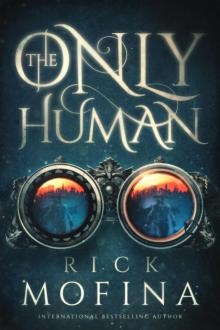 The Only Human
The Only Human Tom Reed Thriller Series
Tom Reed Thriller Series![[Tom Reed and Walt Sydowski 04.0] No Way Back Read online](http://i1.bookreadfree.com/05/tom_reed_and_walt_sydowski_04_0_no_way_back_preview.jpg) [Tom Reed and Walt Sydowski 04.0] No Way Back
[Tom Reed and Walt Sydowski 04.0] No Way Back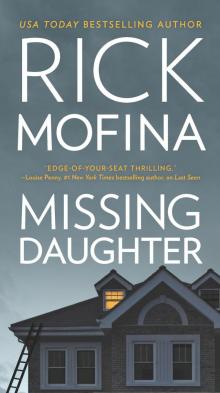 Missing Daughter
Missing Daughter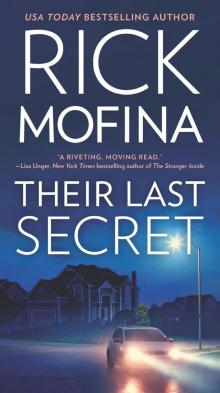 Their Last Secret
Their Last Secret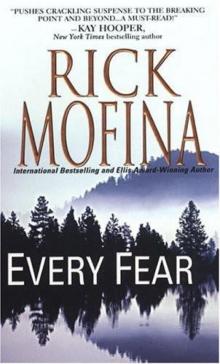 Jason Wade - 02 - Every Fear
Jason Wade - 02 - Every Fear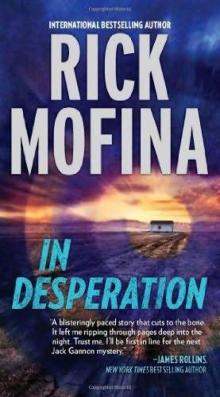 In Desperation
In Desperation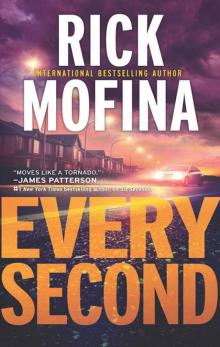 Every Second
Every Second Full Tilt
Full Tilt Search for Her
Search for Her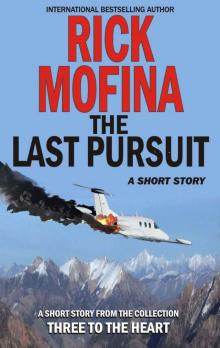 The Last Pursuit
The Last Pursuit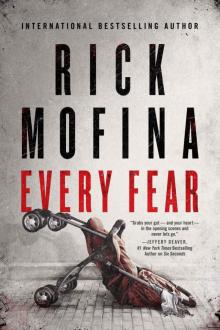 Every Fear
Every Fear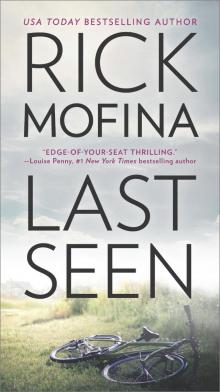 Last Seen
Last Seen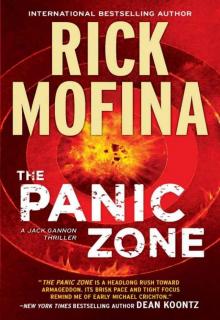 The Panic Zone
The Panic Zone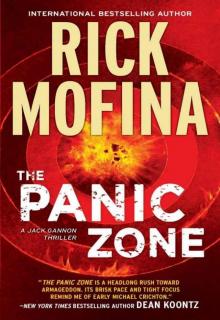 The Panic Zone jg-2
The Panic Zone jg-2 Free Fall
Free Fall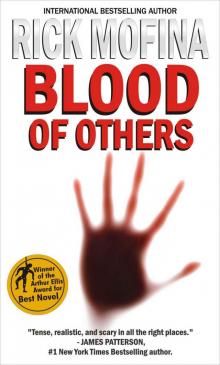 Blood of Others
Blood of Others![[Jason Wade 02.0] Every Fear Read online](http://i1.bookreadfree.com/i1/03/31/jason_wade_02_0_every_fear_preview.jpg) [Jason Wade 02.0] Every Fear
[Jason Wade 02.0] Every Fear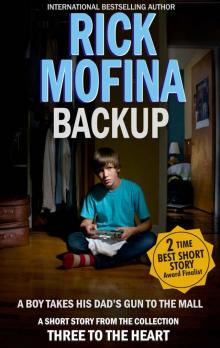 Backup
Backup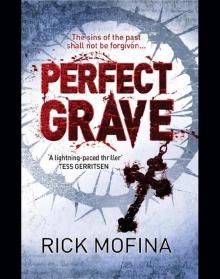 Perfect Grave
Perfect Grave Into the Dark
Into the Dark Whirlwind
Whirlwind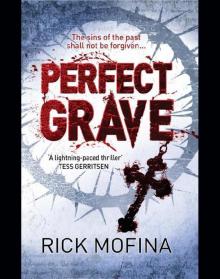 Perfect Grave jw-3
Perfect Grave jw-3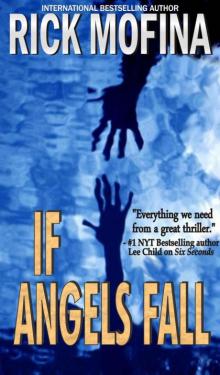 If Angels Fall (tom reed and walt sydowski)
If Angels Fall (tom reed and walt sydowski)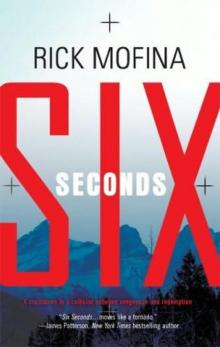 Six Seconds
Six Seconds If Angels Fall
If Angels Fall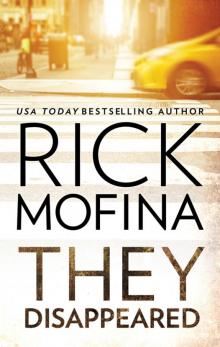 They Disappeared
They Disappeared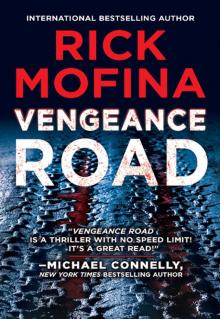 Vengeance Road
Vengeance Road Before Sunrise
Before Sunrise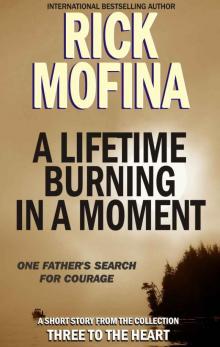 A Lifetime Burning in a Moment
A Lifetime Burning in a Moment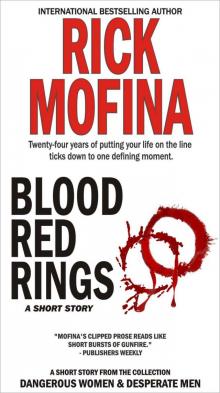 Blood Red Rings (Dangerous Women & Desperate Men)
Blood Red Rings (Dangerous Women & Desperate Men)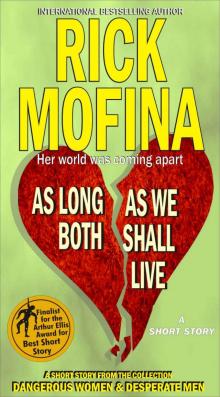 As Long As We Both Shall Live (Dangerous Women & Desperate Men)
As Long As We Both Shall Live (Dangerous Women & Desperate Men)![[Tom Reed and Walt Sydowski 01.0] If Angels Fall Read online](http://i1.bookreadfree.com/i2/04/12/tom_reed_and_walt_sydowski_01_0_if_angels_fall_preview.jpg) [Tom Reed and Walt Sydowski 01.0] If Angels Fall
[Tom Reed and Walt Sydowski 01.0] If Angels Fall Cold Fear
Cold Fear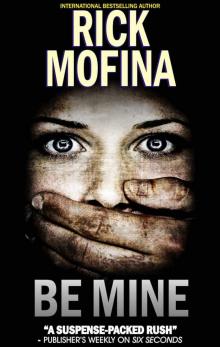 Be Mine
Be Mine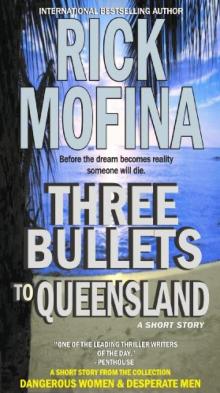 Three Bullets To Queensland
Three Bullets To Queensland